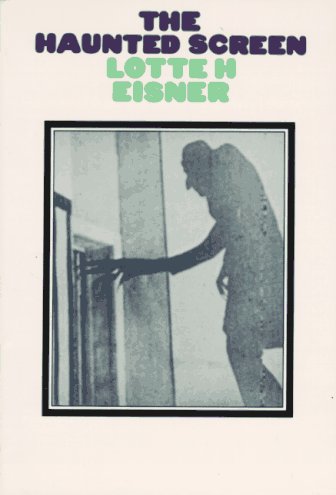Verwandte Artikel zu The Haunted Screen: Expressionism in the German Cinema...
The Haunted Screen: Expressionism in the German Cinema and the Influence of Max Reinhardt - Softcover

Inhaltsangabe
The Golden Age of German cinema began at the end of the First World War and ended shortly after the coming of sound. From "The Cabinet of Dr. Caligari" onwards the principal films of this period were characterized by two influences: literary Expressionism, and the innovations of the theater directors of this period, in particular Max Reinhardt. This book demonstrates the connection between German Romanticism and the cinema through Expressionist writings. It discusses the influence of the theater: the handling of crowds; the use of different levels, and of selective lighting on a predominately dark stage; the reliance on formalized gesture; the innovation of the intimate theater. Against this background, the principal films of the period are examined in detail.The author explains the key critical concepts of the time, and surveys not only the work of the great directors, such as Fritz Lang and F. W. Murnau, but also the contribution of their writers, cameramen, and designers. As "The Times Literary Supplement" wrote, 'Mme. Eisner is first and foremost a film critic, and one of the best in the world. She has all the necessary gifts.' And it described the original French edition of this book as 'one of the very few classics of writing on the film and arguably the best book on the cinema yet written.'
Die Inhaltsangabe kann sich auf eine andere Ausgabe dieses Titels beziehen.
Reseña del editor
The Golden Age of German cinema began at the end of the First World War and ended shortly after the coming of sound. From "The Cabinet of Dr. Caligari" onwards the principal films of this period were characterized by two influences: literary Expressionism, and the innovations of the theater directors of this period, in particular Max Reinhardt. This book demonstrates the connection between German Romanticism and the cinema through Expressionist writings. It discusses the influence of the theater: the handling of crowds; the use of different levels, and of selective lighting on a predominately dark stage; the reliance on formalized gesture; the innovation of the intimate theater. Against this background, the principal films of the period are examined in detail.The author explains the key critical concepts of the time, and surveys not only the work of the great directors, such as Fritz Lang and F. W. Murnau, but also the contribution of their writers, cameramen, and designers. As "The Times Literary Supplement" wrote, 'Mme. Eisner is first and foremost a film critic, and one of the best in the world. She has all the necessary gifts.' And it described the original French edition of this book as 'one of the very few classics of writing on the film and arguably the best book on the cinema yet written.'
„Über diesen Titel“ kann sich auf eine andere Ausgabe dieses Titels beziehen.
Gebraucht kaufen
Zustand: BefriedigendEUR 7,55 für den Versand von USA nach Deutschland
Versandziele, Kosten & DauerSuchergebnisse für The Haunted Screen: Expressionism in the German Cinema...
The Haunted Screen : Expressionism in the German Cinema and the Influence of Max Reinhardt
Anbieter: Better World Books: West, Reno, NV, USA
Zustand: Good. Used book that is in clean, average condition without any missing pages. Artikel-Nr. 4046982-6
Anzahl: 1 verfügbar
The Haunted Screen: Expressionism in the German Cinema and the Influence of Max Reinhardt
Anbieter: Anybook.com, Lincoln, Vereinigtes Königreich
Zustand: Fair. This is an ex-library book and may have the usual library/used-book markings inside.This book has soft covers. In fair condition, suitable as a study copy. Please note the Image in this listing is a stock photo and may not match the covers of the actual item,600grams, ISBN:0520024796. Artikel-Nr. 9899057
Anzahl: 1 verfügbar
The Haunted Screen: Expressionism in the German Cinema and the Influence of Max Reinhardt
Anbieter: Anybook.com, Lincoln, Vereinigtes Königreich
Zustand: Good. This is an ex-library book and may have the usual library/used-book markings inside.This book has soft covers. In good all round condition. Please note the Image in this listing is a stock photo and may not match the covers of the actual item,550grams, ISBN:9780520024793. Artikel-Nr. 9638071
Anzahl: 1 verfügbar

